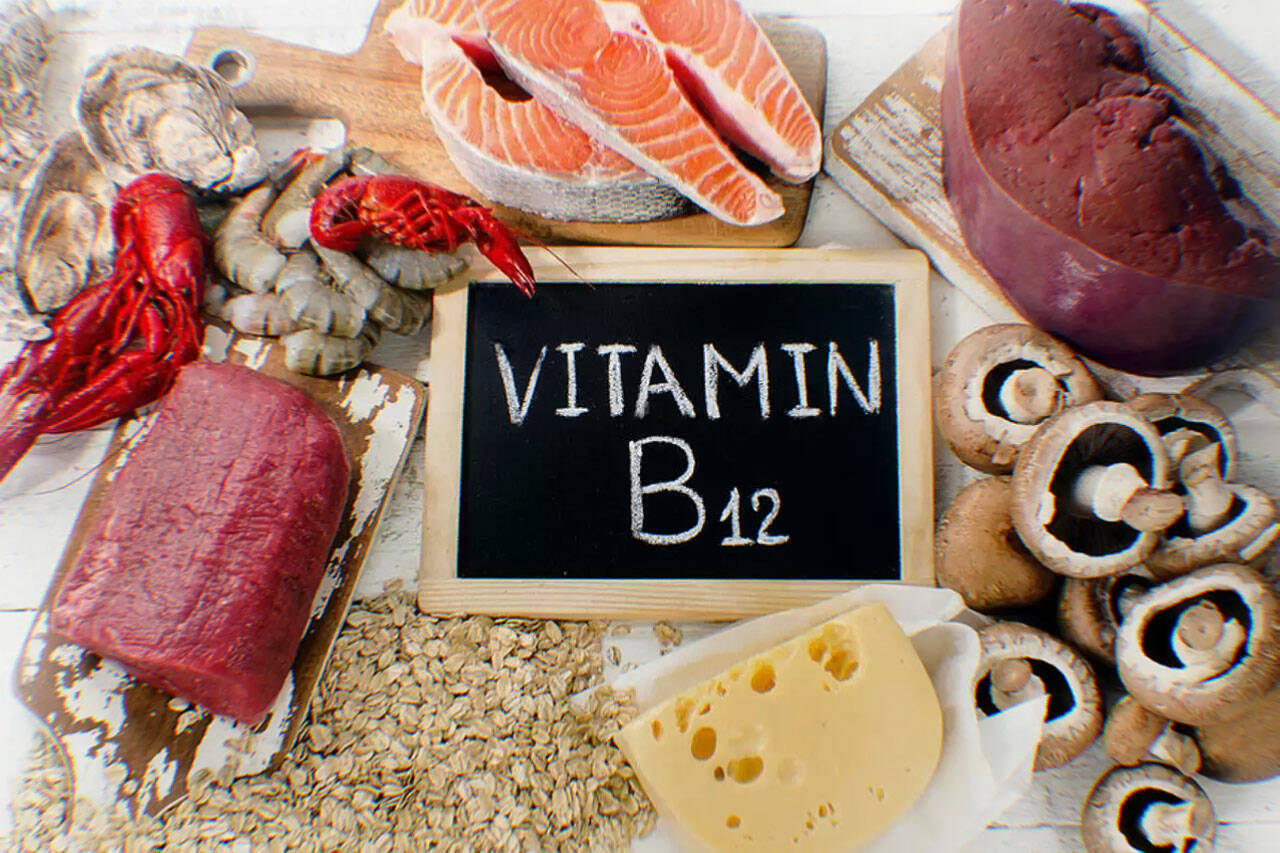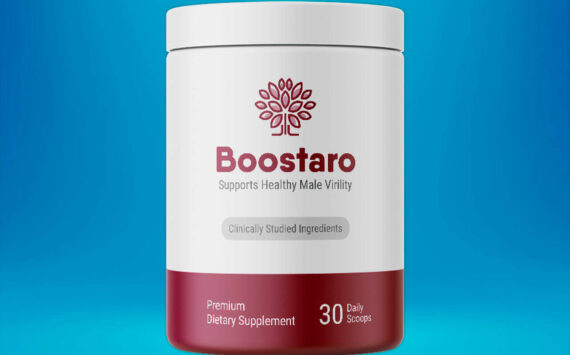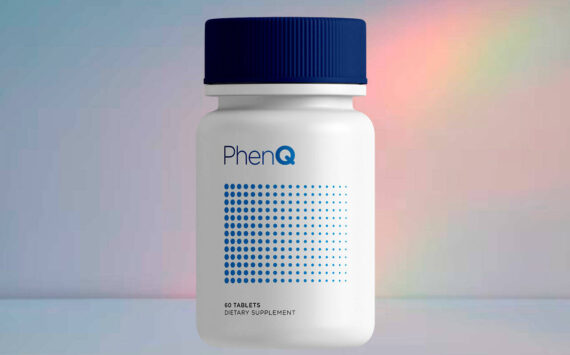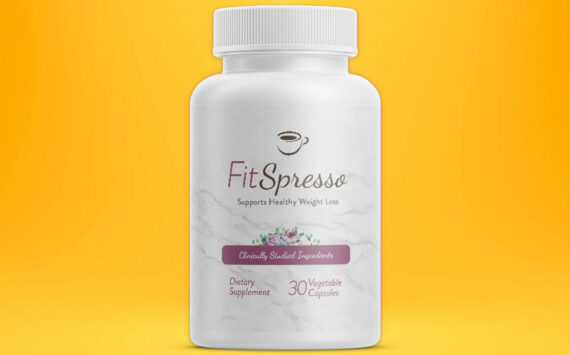Vitamin B12, AKA cobalamin, is an essential vitamin your body requires but cannot produce on its own.
Occurring naturally in animal products, it can also be put in certain foods, plus it comes in injection or oral form.
Vitamin B12 plays a lot of important roles in your body, responsible for supporting normal nerve function. It’s necessary for red blood cell formation as well as DNA synthesis.
The recommended daily intake (RDI) for most adults is 2.4 mcg, but it is higher for females who are pregnant or breastfeeding.
Vitamin B12 can greatly benefit your body by increasing energy, improving memory and preventing heart disease.
Check out these science-based health benefits of vitamin B12.
Assists with Red Blood Cell Formation and Prevents Anemia
Vitamin B12 helps your body make red blood cells. Low vitamin B12 levels can reduce red blood cell formation, preventing them from developing in the right way.
Healthy red blood cells are round and small, but get larger and oval in people with vitamin B12 deficiency.
Due to this irregular, large shape, the red blood cells can’t move into the bloodstream from the bone marrow at a proper rate, resulting in megaloblastic anemia.
When people are anemic, their bodies do not have enough red blood cells to bring oxygen to their vital organs, leading to fatigue and weakness.
Summary
Vitamin B12 is critical in red blood cell formation. When levels are too low, red blood cell production is compromised, resulting in megaloblastic anemia.
Prevent Major Birth Defects
Adequate vitamin B12 levels necessary to ensure a healthy pregnancy.
Studies show that the brain and nervous system of a fetus need sufficient B12 levels from the mother in order to develop properly.
Vitamin B12 deficiency at the start of pregnancy can increase the birth defect risk, including neural tube defects. Also, maternal vitamin B12 deficiency can lead to miscarriage or premature birth.
One study showed that females with vitamin B12 levels under 250 mg/dL were 3x more likely to birth a baby with defects, compared with those who had adequate levels.
For females with a vitamin B12 deficiency and levels under 150 mg/dL the risk is 5x times as compared with females who had levels over 400 mg/dL.
Summary
Good vitamin B12 levels are vital for a healthy pregnancy, helping to prevent spinal cord and brain birth defects.
May Support Bone Health and Prevent Osteoporosis
You need to maintain adequate vitamin B12 levels in order to support bone health.
One study showed that those with a vitamin B12 deficiency had lower-than-normal bone mineral density.
Bones with reduced mineral density are more delicate and fragile, resulting in an increased risk of getting osteoporosis.
Other studies reveal a link between poor bone health and osteoporosis, and low vitamin B12 levels, especially in females.
Summary
Vitamin B12 contributes greatly to bone health. Low blood levels of vitamin B12 are associated with a higher risk of osteoporosis.
Reduce Risk of Macular Degeneration
Macular degeneration is a common eye disease in older adults that affects central vision.
Maintaining proper levels of vitamin B12 prevents the risk of developing age-related macular degeneration.
Researchers say that taking vitamin B12 supplements can reduce levels of homocysteine, which is a kind of amino acid in the bloodstream.
Elevated homocysteine levels are linked to a high risk of age-related macular degeneration.
One study said that supplementing with vitamin B12, as well as vitamin B6 and folic acid, could reduce this risk.
The group that took the supplements for many years didn’t experience as many cases of macular degeneration, as compared with the placebos. The risk of developing the condition was 34 percent lower, and 41 percent lower for severe types.
More studies need to be done to understand how vitamin B12 promotes vision health and how it prevents macular degeneration.
Summary
Maintaining proper levels of vitamin B12 will decrease homocysteine levels in the blood, preventing age-related macular degeneration.
Improvements in Mood and Depression
Vitamin B12 could boost your mood, although how it works is not fully understood. It does play a critical role in metabolizing and synthesizing serotonin, which is a chemical that regulates mood.
That’s why vitamin B12 deficiency could result in decreased serotonin production, causing a depressed mood.
Studies say the use of vitamin B12 supplements can improve symptoms of depression in those who are lacking this vitamin.
One study that looked at people with depression and low vitamin B12 levels revealed that those who took both antidepressants and vitamin B12 showed an improvement in depressive symptoms, as compared with people who were treated with just antidepressants.
Another study said vitamin B12 deficiency resulted in twice the risk of developing severe depression.
Also, high vitamin B12 levels are associated with better treatment outcomes and a boost in probability of recovering from major depressive disorder, or MDD).
Though vitamin B12 supplements can improve mood and alleviate depression in people who lack it, research is unclear if the same effect can be seen in people with normal B12 levels.
Summary
Vitamin B12 is necessary to produce serotonin, which is a chemical in the body that regulates mood. Vitamin B12 supplements can improve mood in people with a deficiency.
Benefits to the Brain by Preventing Loss of Neurons
Vitamin B12 deficiency is connected with memory loss, particularly in older adults.
The vitamin can help to prevent brain atrophy – a loss of neurons in the brain that is connected to memory loss or dementia.
One study in those with early-stage dementia revealed that a combination of omega-3 fatty acid and vitamin B12 supplements slowed down mental decline.
Another study found that even low vitamin B12 levels can lead to poor memory. Thus, taking vitamin B12 could improve memory, even if there isn’t a clinically-diagnosed deficiency.
More research is needed on the effect of vitamin B12 supplements when it comes to memory and cognitive function.
Summary
Vitamin B12 could prevent brain atrophy as well as memory loss. More research is needed to see if this vital vitamin can actually improve memory in those who don’t have a deficiency.
Energy Boost
Vitamin B12 supplements may be able to give you a surge of energy. While all B vitamins are critical to your body’s energy production, they do not necessarily give energy themselves.
No scientific evidence exists that suggests vitamin B12 supplements are able to boost energy in people who already have sufficient levels of the vitamin.
But if you’re deficient in vitamin B12, you may be able to increase energy if you take a supplement or increase your intake.
Many energy drinks and pre workout supplements contain B12.
One of the early signs of vitamin B12 deficiency is lack of energy or fatigue.
Summary
Vitamin B12 is necessary for energy production in the body. When you take a supplement, you could improve your energy level, but only in those who are deficient.
Improve Hearts Health Through Decrease in Homocysteine
High blood levels of homocysteine, a common amino acid, can lead to a higher risk of heart disease.
If you are deficient in vitamin B12, you will experience higher homocysteine levels.
Studies show that vitamin B12 will lower homocysteine levels, reducing your risk of heart disease.
No scientific evidence is out there yet that confirms the effectiveness of vitamin B12 in this regard.
That’s why more research must be done to understand the relationship between heart health and vitamin B12.
Summary
Vitamin B12 decreases blood homocysteine, which is an amino acid associated with a higher risk of heart disease. Research doesn’t support this claim yet, though.
Supporting Healthy Hair, Nails and Skin
Due to vitamin B12’s role in cell production, proper levels are necessary to promote healthy hair, nails and skin.
Low vitamin B12 levels can actually lead to hyperpigmentation, hair changes, nail discoloration, vitiligo (patchy loss of skin color) and angular stomatitis (cracked and inflamed mouth corners).
Taking vitamin B12 supplements can improve dermatologic symptoms in those lacking enough B12.
Those who are well-nourished in this vitamin likely won’t see an improvement to their skin health, nail strength or hair health with the use of a supplement.
Summary
Healthy vitamin B12 levels are necessary for skin, hair, and nails. But taking a supplement won’t likely improve these areas if you already have low levels.
Who’s at Risk of Vitamin B12 Deficiency?
Six percent of people ages 60 or older suffer from vitamin B12 deficiency; 20 percent have low to normal deficient levels.
Vitamin B12 deficiency can happen in two ways. Either your body can’t absorb it from food or your diet lacks proper amounts.
People who are at risk of vitamin B12 deficiency include:
- Those with gastrointestinal disorders, such as celiac disease or Crohn’s disease
- Older adults
- Those who have undergone gastrointestinal surgeries, such as bowel resection surgery or bariatric surgery
- Vegans
- People who take metformin to control blood sugar
- Those who take proton pump inhibitors to treat chronic heartburn
Many older adults experience reduced secretion of hydrochloric acid in their stomachs, which compromises the absorption of vitamin B12.
If your body can’t readily absorb vitamin B12, your doctor may tell you about intramuscular injections of B12 which could increase those levels.
Vitamin B12 is naturally contained in animal products.
While plant-based milks or grains could be fortified with vitamin B12, vegan diets just don’t get access to this vitamin, which means they’re at a higher risk for deficiency.
If you consume a varied, healthy diet, it’s relatively easy to prevent a vitamin B12 deficiency. But speak to your doctor if you think you’re at risk.
Vitamin B12 deficiency can be fixed with oral or intramuscular injections.
Summary
Vitamin B12 deficiency risk factors can include decreased ability to properly absorb this vitamin because of low hydrochloric acid secretion, gastrointestinal disease and surgeries, or certain medications. Vegans are also at a high risk because B12 is only contained in animal products.
In Conclusion
Vitamin B12, a water-soluble vitamin, must be obtained through diet or by taking supplements.
This vitamin is responsible for a variety of bodily functions and could benefit your health in many ways. It can help prevent major birth defects, support bone health, improve mood and maintain healthy skin and hair.
Getting proper amounts of vitamin B12 in your diet is important. But if you can’t, it’s a good idea to take supplements to increase B12 intake.








